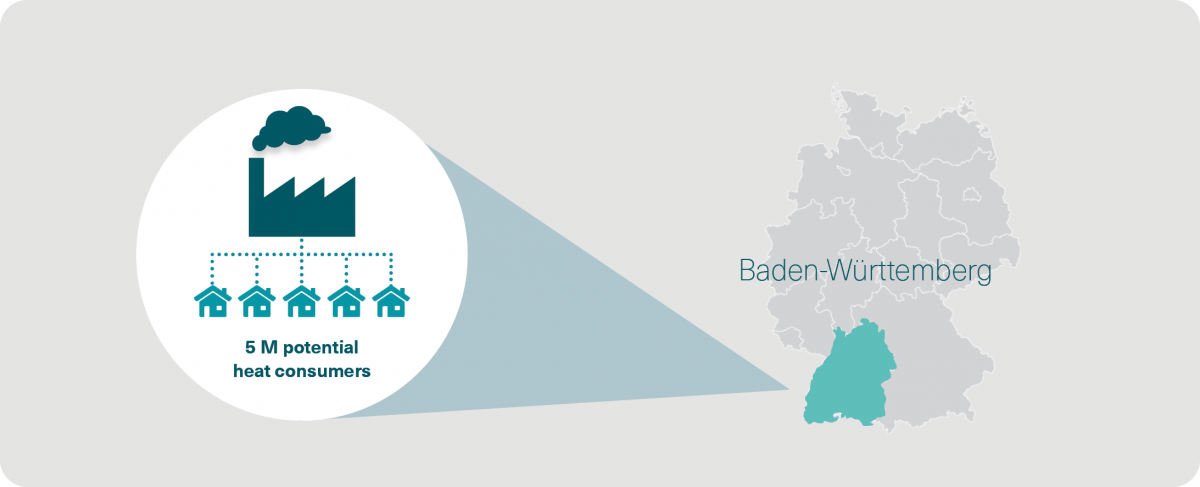Germany: Federal state opens up to district heating for 5 million consumers

As one of Germany's largest and richest federal states, Baden-Württemberg has set a target of 80 percent of the state's energy consumption based on renewable energy by 2050. In the wake of this target, close Danish-German dialogue has resulted in new heating legislation which will ensure that the state's 103 largest cities with a total of over 5 million inhabitants must initiate a long-term strategic heat planning to boost the transition to renewable energy. The new law demands mandatory heat planning and has been created with inspiration from Denmark.
Denmark has many years of experience with decentralization of the heating sector coupled with long-term planning security. For the past four years, the Danish Energy Agency and the Danish Embassy in Berlin have therefore cooperated with the Baden-Württemberg Ministry of the Environment, Climate and Energy to exchange experiences on the green transition of the heating sector and support the municipalities in their forthcoming heating planning. The dialogue has been complemented by efforts from the Danish Board of District Heating (DBDH), The Confederation of Danish Industry (DI) and State of Green, which have presented concrete Danish solutions for inspiration.
Read more about the Danish contributions to district heating in Germany here.